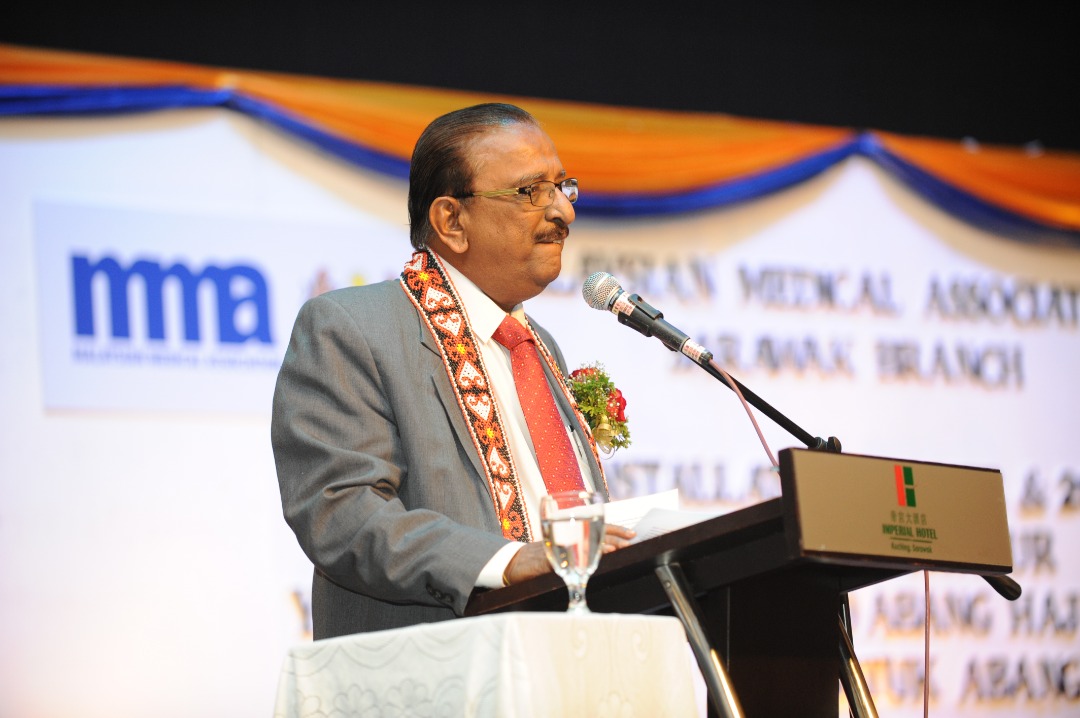KUALA LUMPUR, Jan 3 — The Malaysian Medical Association (MMA) today urged the Ministry of Health (MOH) to engage with stakeholders before tabling a major health care reform proposal to Cabinet.
Health Minister Dzulkefly Ahmad recently announced that he planned to bring the Dasar Sihat Bersama (Health Together) 2030 (SB 2030) proposal to the Cabinet before the end of the month, aimed at revamping the Malaysia’s health financing system that is currently funded from the general taxation.
Dzulkefly was also reported as telling The Star on Wednesday that SB 2030 would increase pooled and prepaid health financing in a way that would be affordable for households and employers, and to establish a well-governed health financing institution. However, he did not specify if he was proposing a social health insurance programme that would make monthly salary deductions from workers and employers.
MMA president Dr N. Ganabaskaran said the proposal appears to address most issues at the macro level and, in principle, is a welcomed move for the country’s largest group of doctors.
“However, there are no details about the execution, who will be in charge, the timelines, and the source of funding,” Dr Ganabaskaran told CodeBlue today.
“We’re not sure if this SB2030 comes from the Health Advisory Council (HAC), (the) Harvard report (the Malaysian Health System Research Study), MOH’s planning division, YBMK’s (Dzulkefly’s) office, a combination, or none of them,” he added.
“MMA feels engaging with relevant stakeholders first is a necessary step as it involves a health policy involving all parties concerned.”
HAC chairman Dr Abu Bakar Suleiman declined comment when contacted, saying his advisory council only advises Dzulkefly on health care issues, and that it is up to the health minister and MOH to decide on issues.
Deputy Health Minister Dr Lee Boon Chye, meanwhile, said to wait for Dzulkefly to make a public announcement on the issue. He did not say when this would be.
Dr Lee also did not comment on whether it would be problematic for MOH to only provide the details of the proposal for public feedback after it is approved by Cabinet, following scrutiny over a controversial Bill it tabled that criminalised doctors for rejecting patients’ drug prescription requests. Subsequent readings of the amendment to the Poisons Act 1952 were postponed to March after outrage from doctors’ and dentists’ groups.
MOH also received some public backlash for announcing, without getting stakeholders’ input first, the deregulation of private physicians’ and dentists’ professional fees by allowing them to set their own consultation fees.
It was reported on Wednesday that the SB 2030 — if passed in Cabinet and subsequently put into practice — would be the health sector’s version of the Shared Prosperity Vision 2030, the Pakatan Harapan’s (PH) government blueprint for 2021 to 2030 for marginalised groups.
SB 2030 would enhance existing health care services and address issues such as the lack of funds, long waiting period, lack of medical staff, the burden of non-communicable diseases and an ageing population, though no details have been made public yet about how this would be achieved.
The only practical means of achieving SB 2030 that was announced by Dzulkefly was that an electronic medical record (EMR) system, which stores the records of patients in public health facilities, would be introduced nationwide to cut down waiting times and enhance patient care and population health. It would also be made accessible to private medical centres too, he said.
However, Dzulkefly announced as early as May last year that MOH is implementing the EMR system nationwide, with 145 hospitals slated to have EMR systems by 2021.
In Malaysia’s dual health care system, patients pay out-of-pocket for medical treatment at private clinics and hospitals, but if they have either their personal or employer-borne medical insurance, their insurance companies will pay for their expenses. Treatment at government hospitals and clinics sees a minimal fee.
In 2012, the government proposed the 1Care social health insurance under the 1Malaysia initiative by the Najib Razak administration, for supposedly cheaper health care. The system would have seen all private clinics and hospitals banding together for the sake of standardisation.
1Care proposed a mandatory 10 per cent deduction of one’s monthly gross salary to contribute to the National Health Financing Authority, with patients having no option to opt out. Employers, on the other hand, were to face legal action if they did not participate.
Patients also could not choose their own doctor to seek free medical treatment. The 1Care system would assign one for them. If other medical practitioners were consulted by patients, the costs would be borne by patients, not 1Care. Doctor visits were limited to six per year. Exceeding this would see patients paying for the visits.
Dr Ganasbakaran, meanwhile, said any form of health financing should be under the purview of Parliament, and run by professionals.
“Corporatisation should be intended to promote good governance and transparency when negotiating contracts, and not for the purpose of profit.
“The over-regulatory burden on the private sector should also be streamlined,” he added.








